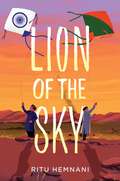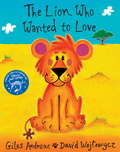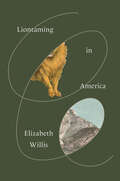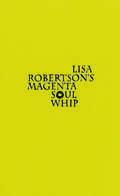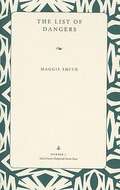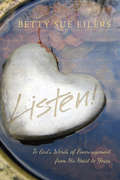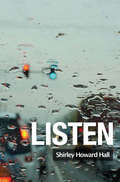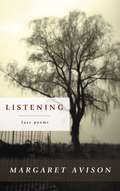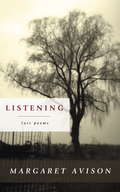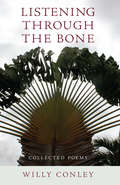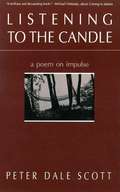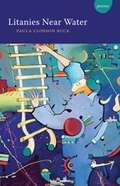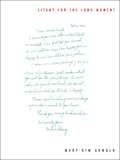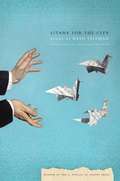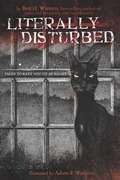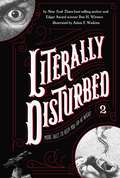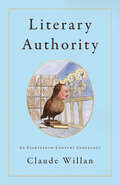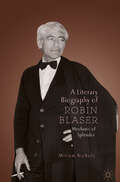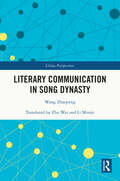- Table View
- List View
Lion of the Sky
by Ritu HemnaniAn evocative historical novel in verse about a boy and his family who are forced to flee their home and become refugees after the British Partition of India. Perfect for fans of Other Words for Home. Twelve-year-old Raj is happiest flying kites with his best friend, Iqbal. As their kites soar, Raj feels free, like his beloved India soon will be, and he can’t wait to celebrate their independence.But when a British lawyer draws a line across a map, splitting India in two, Raj is thrust into a fractured world. With Partition declared, Hindu, Sikh, and Muslim families are torn apart—and Raj’s Hindu and Iqbal’s Muslim families are among them.Forced to flee and become refugees, Raj’s family is left to start over in a new country. After suffering devastating losses, Raj must summon the courage to survive the brutal upheaval of both his country and his heart.Inspired by the author’s true family history, Lion of the Sky is a deeply moving coming-of-age tale about identity, belonging, and the power of hope.
The Lion Who Wanted To Love
by Giles AndreaeFrom the author of international bestseller, Giraffes Can't Dance, comes this feel-good rhyming story about a brave little lion who dares to be different ...Leo isn't like other lion cubs. Instead of chasing zebras and antelopes, he wants to make friends with them. But can a lion who's so different ever fit in with the rest of his pride? Learn how Leo's kindness brings happiness to the jungle in this colourful picture book story. Winner of the Red House Children's Book Award.
Liontaming in America
by Elizabeth WillisA spiraling, staggering new collection of historical and mythic reinvention (and Elizabeth Willis’s first book with New Directions) “To disrupt the relationship of predator and prey, to reshape one’s relation to power, is to renovate the lived and living world,” Elizabeth Willis writes in her visionary work that delves deep into the ancient enchantments and disciplinary displays of the circus. Liontaming in America investigates the utopian aspirations fleetingly enacted in the polyamorous life of a nineteenth-century Mormon community, interweaving archival and personal threads with the histories of domestic labor, extraction economies, and the performance of family in theater, film, and everyday life. Lines reverberate between worldliness and devotion, between Peter Pan and Close Encounters, between Paul Robeson and Maude Adams, between leaps of faith and passionate alliances, between everyday tragedy and imaginative social possibility. As Willis writes in her afterword to the book, “The repeated unmaking and remaking of America, as a concept and as an ongoing textual project, is not impossible. It is happening all the time.”
Lisa Robertson's Magenta Soul Whip
by Lisa RobertsonVerses, essays, confessions, reports, translations, drafts, treatises, laments and utopias, 1995-2007. Collected by Elisa Sampedrin.Lisa Robertson writes poems that mine the past - its ideas, its personages, its syntax - to construct a lexicon of the future. Her poems both court and cuckold subjectivity by unmasking its fundament of sex and hesitancy, the coil of doubt in its certitude. Reading her laments and utopias, we realize that language - whiplike - casts ahead of itself a fortuitous form. The form brims here pleasurably with dogs, movie stars, broths, painting's detritus, Latin and pillage.Erudite and startling, the poems in Lisa Robertson's Magenta Soul Whip, occasional works written over the past fifteen years, turn vestige into architecture, chagrin into resplendence. In them, we recognize our grand, saddened century.'Robertson makes intellect seductive; only her poetry could turn swooning into a critical gesture.' - The Village Voice
Listen!
by Betty Sue EilersWill the voices clamor around you,Drowning out the whisper of Mine?Will you hearken to My voice,To listen all the time?Do you feel overwhelmed by the cares of everyday life? Author, mother and grandmother Betty Sue Eilers has learned to listen to the voice of God, and to lay down the burdens she was not meant to carry. The heavenly Father has an endless supply of comfort and encouragement to refresh His children during times of uncertainty, if we will spend time in His presence and listen to His voice. Don&’t let the burdens of life get you down. God will fulfill every promise. This collection of poems straight from the Father&’s heart will inspire you to spend time with God each day. Be free to cast your cares upon Him, rest in His presence, and Listen!
Listen
by Shirley Howard Hall“From ethics to eros, Shirley Hall's poetry has an edge that sharply dissects the dilemmas of contemporary life. Hers is the voice of the prophet crying out for social justice; the voice of a compassionate human being seeking basic decency and dignity. More than mere entertainment and aesthetic experience, Hall's compositions provide insight and instruction, and are guaranteed to make your spirit sing.” Lance Strate Prof. of Communication and Media Studies Fordham University, New York ------ “...a spokesperson for others - brave at voicing wrongs - her poems have a courage behind them, a tongue free to unleash a fury…words that dig deep into ones soul. Marvelous!” Aine MacAodha Author: Where the Three Rivers Meet Omagh Ireland ------ “...a book for everyone who cares for the human condition and treasures the beauty of the word. A must read. ~ LISTEN… and learn” Constance Stadler, Ph.D Author: Tinted Steam, Sublunary Curse Washington DC / Virginia ------ “...poems that are moving, intelligent and thought provoking… she defines the essence of my group. A book you’ll read again and again” Joe Sting Cup of Coffee Networkers.
Listen, Children, Listen: An Anthology of Poems for the Very Young
by Myra Cohn LivingstonWilliam Shakespeare, Carl sandburg, Langston Hughes, Walter de la Mare, Vachel Lindsay, and William Butler Yeats are just a few of the authors featured in this book. The Lamb, Carol of the Brown Man, Calico Pie, and The Yak are just a few of the poems to be enjoyed.
Listen, My Children: Poems for Second Graders
by Susan Tyler HitchcockAnthology of poems for young children.
Listen My Children: Poems for first graders
by The Editors at the CORE KNOWLEDGE FOUNDATIONThis book is part of a six-volume series which collects all the poems in the Core Knowledge Sequence for kindergarten through fifth grade. Each volume includes occasional notes about the poems and biographical sketches about the poems' authors, but the focus is really the poems themselves. Some have been chosen because they reflect times past; others because of their literary fame; still others were selected because they express states of mind shared by many children.
Listen My Flowerbud: Mising Tribal Oral Poetry of Assam
by Jiban Narah Moushumi KandaliMoushumi's work has a number of themes but her strong narrative voice runs through all the stories. In English and Assamese.
Listen to the Warm
by Rod MckuenLove, loneliness, alienation, and the need for human contact are the themes of McKuen's poems.
Listening: The Last Poems of Margaret Avison
by Margaret AvisonA Globe and Mail Best Book of the Year, Margaret Avison was widely acknowledged as one of Canada's foremost poets. Taut, sublime, subtle, and crystalline, the poems in her brilliant new collection, published posthumously, showcase Avison at her best, and constitute the final chapter in an extraordinary artistic legacy that spanned more than forty years.
Listening
by Margaret AvisonA Globe and Mail Best Book of the YearMargaret Avison was widely acknowledged as one of Canada's foremost poets. Taut, sublime, subtle, and crystalline, the poems in her brilliant new collection, published posthumously, showcase Avison at her best, and constitute the final chapter in an extraordinary artistic legacy that spanned more than forty years.From the Trade Paperback edition.
Listening through the Bone: Collected Poems
by Willy ConleyI don’t write "with the ear" as most poets do, but with the eye. As Deaf people are apt to do, we become attuned to our world through tactile means, listening through the bone for vibrations, sensing shifts in air currents, recognizing wafting odors, observing fluctuations and reflections of light and movements in the water. In Listening through the Bone, Willy Conley bears witness to life’s moments and renders them into poems that are at once irreverent and tender. His poetry examines life cycles, the natural world, and his experiences as a Deaf individual. It is presented in five parts: Inaudibles Existentials Quizzicals Irrevocables Environmentals Conley’s thoughts on the banal and the bizarre include translations of poetry from American Sign Language to English. His identity as a Deaf poet lends a strong visual aspect to his work. This collection is accompanied by the author’s photographs, including “watergraphs” that reveal inverted images reflected in pools of water.
Listening to the Candle: A Poem on Impulse
by Peter Dale ScottListen To The Candle is a booklength reflection on the poet's life. Listening followings Jakarta as the seconds step in a projected trilogy: Self-knowledge is more at issue than self-alienation; art perhaps overshadows politics; Rilke is more the poem's guide than pound.
Litanies Near Water: Poems
by Paula Closson BuckInfused with Mediterranean landscapes, the poems of Litanies Near Water, Paula Closson Buck's second collection, probe the world through language that acts sometimes like a divining rod and sometimes like a lightning rod. Elegant meditative lyrics such as "You Cannot Love the Wind" and "Theory of an Impersonal God" answer to politically alert poems like "Monk Killed by Tractor in Bid to Dodge Police." Ultimately, in Buck's deft hand, the lyrical quest for understanding becomes a form of diplomacy between the physical and the metaphysical, between instances of beauty and the violence that threatens daily.
Litany For The Long Moment
by Mary-Kim ArnoldThe orphan at the center of LITANY FOR THE LONG MOMENT is without homeland and without language. In three linked lyric essays, Arnold attempts to claim her own linguistic, cultural, and aesthetic lineage. Born in Korea and adopted to the US as a child, she explores the interconnectedness of language and identity through the lens of migration and cultural rupture. Invoking artists, writers, and thinkers—Theresa Hak Kyung Cha, Francesca Woodman, Susan Sontag, among others—LITANY FOR THE LONG MOMENT interweaves personal documents, images, and critical texts as a means to examine loss and longing.
Litany for the City
by Ryan TeitmanSelected by Jane Hirshfield from over six hundred manuscripts, Litany for the City is the winner of the tenth annual A. Poulin, Jr. Poetry Prize. Of Litany for the City, Hirshfield writes, "This book carries both startling imaginative freedoms and the impulsion of a person navigating the terrain of his life by means of the star-chart and sextant of poems--a winning combination, for me."Ryan Teitman is a Wallace Stegner Fellow in Poetry at Stanford University. He holds an MA and MFA from Indiana University. He currently lives in Berkeley, California.
Litany for the City
by Ryan Teitman Jane HirshfieldSelected by Jane Hirshfield from over six hundred manuscripts, Litany for the City is the winner of the tenth annual A. Poulin, Jr. Poetry Prize. Of Litany for the City, Hirshfield writes, "This book carries both startling imaginative freedoms and the impulsion of a person navigating the terrain of his life by means of the star-chart and sextant of poems--a winning combination, for me."Ryan Teitman is a Wallace Stegner Fellow in Poetry at Stanford University. He holds an MA and MFA from Indiana University. He currently lives in Berkeley, California.
Literally Disturbed
by Ben H. Winters Adam F. WatkinsCome on up to the attic Come up if you dare Climb up the rickety ladder-- Come up and see what's there... Ben H. Winters brings the fear factor to this collection of thirty spooktastic rhyming stories about witches, zombies, vampires and more! Featuring eerie illustrations by Adam F. Watkins, this book is perfect for nights around the campfire and slumber party ghost stories. Be sure to keep a flashlight close!
Literally Disturbed #2
by Adam F. Watkins Ben H. WintersMore scary stories from Edgar Award winner and New York Times bestselling author Ben H. Winters!Chased by wolves,no escape.Monsters screeching,changing shape.Dusty tombstones,bones beneath.Swooping dragons,giant teeth--all things awful, all things wrong,all these nightmares, all night long!Ben H. Winters continues to scare readers in this collection of 30 creepy rhyming stories about the things that haunt your nightmares! Featuring more chilling illustrations by Adam F. Watkins, this book will keep readers awake all night long."Winters gives kids just the right amount of scary (i.e., not too scary) for read-alouds at a sleepover or around the campfire--or even solo under the covers with a flashlight." --Booklist, on Literally Disturbed: Tales to Keep You Up at Night
Literary Authority: An Eighteenth-Century Genealogy
by Claude WillanThis book is the cultural history of an idea which now seems so self-evident as barely to be worth stating: through writing imaginative literature, an author can accrue significant and lasting economic and cultural power. We take for granted, now, that authority dwells in literature and in being its author. This state of affairs was not naturally occurring, but deliberately invented. This book tells the story of that invention. The story's central figures are Alexander Pope and Samuel Johnson. But its narrative begins in the 1680s, with the last gasp of the bond linking literary to political authority. While Jacobite poets celebrated (and mourned) the Stuart dynasty, Whig writers traced the philosophical and aesthetic consequences of the accession of William of Orange. Both groups left behind sets of literary devices ready-made to confer and validate authority. Claude Willan challenges the continued reign of the "Scriblerian" model of the period and shows how that reign was engineered. In so doing he historicizes the relationship between "good" and "bad" writing, and suggests how we might think about literature and beauty had Pope and Johnson not taken literary authority for themselves. What might literature have looked like, and what could we use it for, he provocatively asks.
A Literary Biography of Robin Blaser: Mechanic of Splendor (Modern and Contemporary Poetry and Poetics)
by Miriam NicholsA Literary Biography of Robin Blaser: Mechanic of Splendor is the first major study illustrating Robin Blaser’s significance to North American poetry. The poet Robin Blaser (1925–2009) was an important participant in the Berkeley Renaissance of the 1950s and San Francisco poetry circles of the 1960s. The book illuminates Blaser’s distinctive responses to and relationships with familiar writers including Robert Duncan, Jack Spicer, and Charles Olson via their correspondence. Blaser contributed to the formation of the serial poem as a dominant mode in post-war New American poetry through his work and engagement with the poetry communities of the time. Offering a new perspective on a well-known and influential period in American poetry, Miriam Nichols combines the story of Blaser’s life—coming from a mid-western conservative religious upbringing and his coming of age as a gay man in Berkeley, Boston, and San Francisco—with critical assessments of his major poems through unprecedented archival research. This literary biography presents Blaser’s poetry and poetics in the many contexts from which it came, ranging from the Berkeley Renaissance to the Vancouver scene; from surrealism to phenomenology; from the New American poetry to the Canadian postmodern; from the homoerotic to high theory. Throughout, Blaser’s voice is heard in the excitement of his early years in Berkeley and Boston and the seriousness of the later years where he was doing most of his living in his work.
Literary Communication in Song Dynasty (ISSN)
by Wang ZhaopengBased on first-hand historical materials, this book explores the various aspects of literary communication during the Song Dynasty in China.The book investigates the single-channel dissemination of poetry and ci works, the dissemination of literary collections, the dissemination through wall inscriptions, the oral dissemination of Song ci, the remuneration and commercialization of literature in the Song Dynasty, the paths to fame for Song writers, the non-literary factors in the dissemination of literature and the dissemination of literary works through paintings and songs. The author provides insights into the six major questions in the study of literary communication: Who disseminates, where, how, what, to whom and the effects of dissemination. The author also seeks to provide detailed answers to the following questions. What was the role of female singers in both domestic and official entertainment? What were the costs and prices of the books? Who paid the authors? What methods did writers use to gain fame and social recognition?This work will be essential reading for scholars and students of Chinese studies, communication studies and media and cultural studies.
